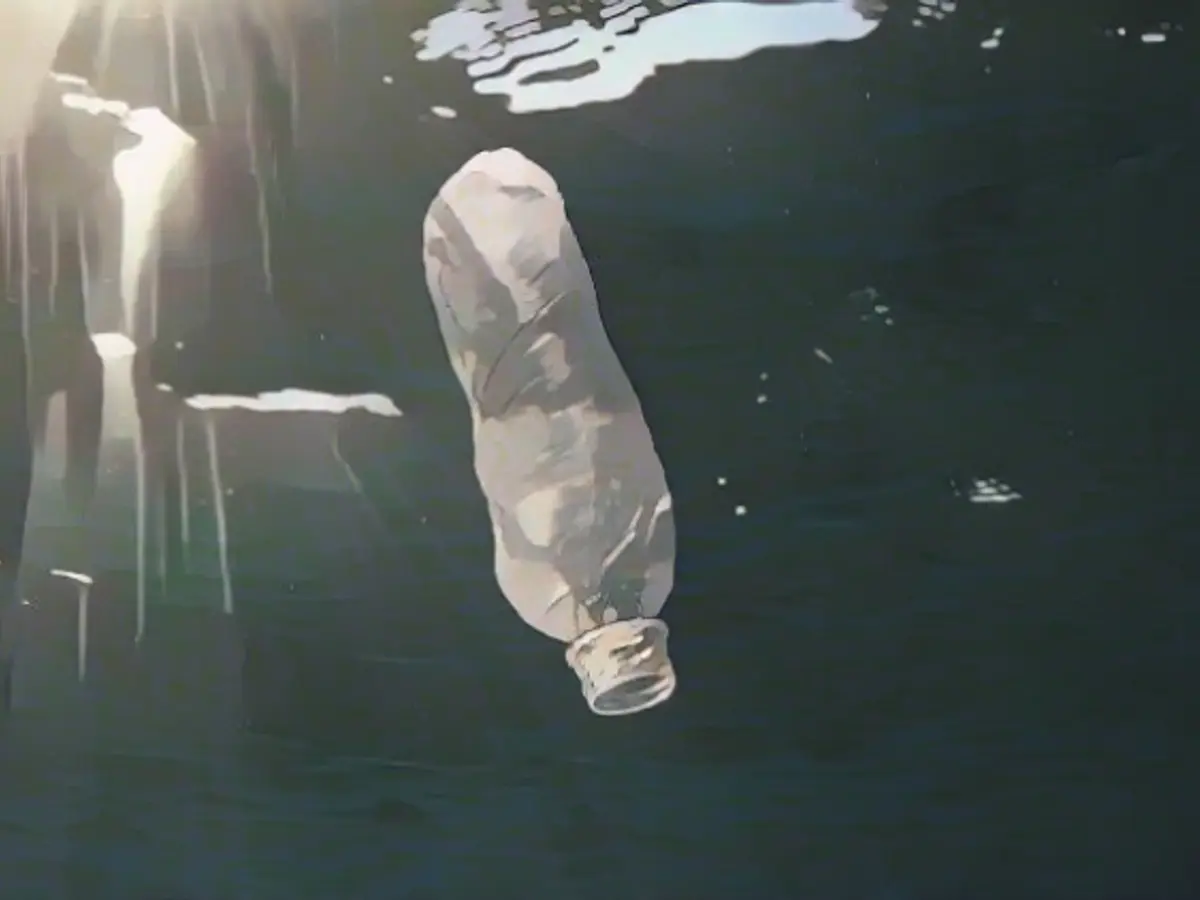A world without plastic - is that possible?
In Nairobi, heads of state, diplomats and environmentalists from all over the world are discussing an agreement to prevent and combat plastic waste. It is high time: millions of tons of plastic end up in rivers, lakes and oceans every year.
This week, government representatives from 175 countries as well as diplomats, economic players and environmentalists met in Kenya's capital Nairobi to draw up an international treaty to save the world from being flooded with plastic waste. It is to become a globally binding agreement, the second most important program to save the planet after the Paris Agreement of 2015, in which the countries of the world have committed to limiting global warming to 1.5 degrees Celsius.
"The threat posed by plastic to our planet, our health and our future is so great," warned Kenyan President William Ruto in his opening speech, "that we all - and by that I mean all of us, the Global South and the Global North - must develop and implement a global instrument that will help us neutralize the threat of plastic pollution in our world." According to Ruto, the aim is for the more than 2,000 conference participants to agree this week on an agreement that bans particularly hazardous plastic products worldwide and commits countries to reducing plastic.
According to the UN Environment Agency UNEP, under whose auspices the agreement is being negotiated, more than 400 million tons of plastic are produced worldwide every year. Of this, 23 million tons end up in rivers, lakes and further into the oceans. Only less than 10 percent is recycled worldwide. Almost half of plastic waste is dumped in landfills, another quarter is disposed of poorly, while 17 percent is incinerated. In view of these mountains of plastic waste, Ruto said: "If we do nothing, we will produce more than one billion tons of plastic by 2060. This kind of pollution of our environment is unacceptable and essentially existential."
Africa particularly badly affected
It is no coincidence that this important environmental conference is taking place in Africa. Kenya's capital Nairobi has been home to the UNEP headquarters since it was founded in 1972. At that time, government representatives from Africa had insisted within the United Nations that some UN agencies should be headquartered in the global South in order to include the perspectives of less developed countries. The UNEP headquarters was the first in the Global South. Since then, African countries have been able to address their problems in the world, especially on environmental issues. After the African climate summit in Nairobi in September, the plastics conference is now the second important environmental conference on the continent this year.
African countries are particularly badly affected by plastic waste. Only very few large cities in Africa have functioning waste disposal systems, such as waste collection. Most are a long way from separating waste and recycling certain raw materials such as plastic, glass and paper. In most cases, all the waste - from electronic waste to banana peels - ends up on a gigantic mountain of garbage outside the capital. At the same time, certain factors such as poverty and a lack of clean drinking water from wells and water pipes lead to people consuming more plastic: Every liter of water people drink every day is served in a plastic bottle.
In many large cities, plastic waste poses life-threatening risks. Bags and bottles clog the sewage systems in the dry season. As soon as the monsoon-like heavy rain sets in, the water cannot drain away and entire districts are flooded, drowning children.
Kenya faces four years in prison
Some African countries have already made a drastic move away from single-use plastic as a result. Since 2008, the small country of Rwanda in the heart of the continent has been one of the world's model countries for its zero-tolerance policy towards single-use plastic: even when entering the country, every suitcase is rummaged through for plastic bags at the airport. In 2017, Kenya introduced a tough law against single-use plastic after farm animals such as cows died horribly because their stomachs were clogged with plastic. Failure to comply with the law is punishable by four years in prison and a fine of the equivalent of 25,000 euros.
However, it is now clear that even if individual countries ban plastic as far as possible, these laws automatically reach their limits. Mafia-like structures have now established themselves in East Africa, smuggling plastic bags across the continent. Kenya's President Ruto is therefore a keen advocate of a global agreement to ban single-use plastic worldwide in the long term. Over 60 countries worldwide, including many from the Global South, are in favor of a significant reduction in plastic production.
Other countries are insisting on a voluntary commitment by governments, similar to the 2015 Paris Agreement. At the last round of negotiations of the responsible UNEP committee in Paris in May, leading oil and plastic-producing countries such as the USA, China, India and Saudi Arabia argued that each country should adopt its own rules regarding plastic reduction. They reject a globally uniform, binding agreement.
In September, the UNEP committee presented an initial draft for an agreement. This will form the basis for this week's negotiations in Nairobi. Many participants are hoping for a global agreement at the end of this week. Peruvian committee chairman Gustavo Meza-Cuadra Velasquez emphasized at the start of the negotiations: "We have the collective power to change this course."
- Despite Kenya's efforts to combat plastic waste with a strict law against single-use plastic, neighboring countries in East Africa have seen the emergence of mafia-like structures smuggling plastic bags across the continent, highlighting the need for a global agreement.
- The world is discussing an agreement in Kenya to prevent and combat plastic waste due to the alarming fact that Africa, particularly Kenya, produces over 23 million tons of plastic waste annually, with less than 10% being recycled.
Source: www.ntv.de








